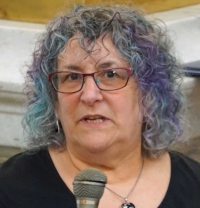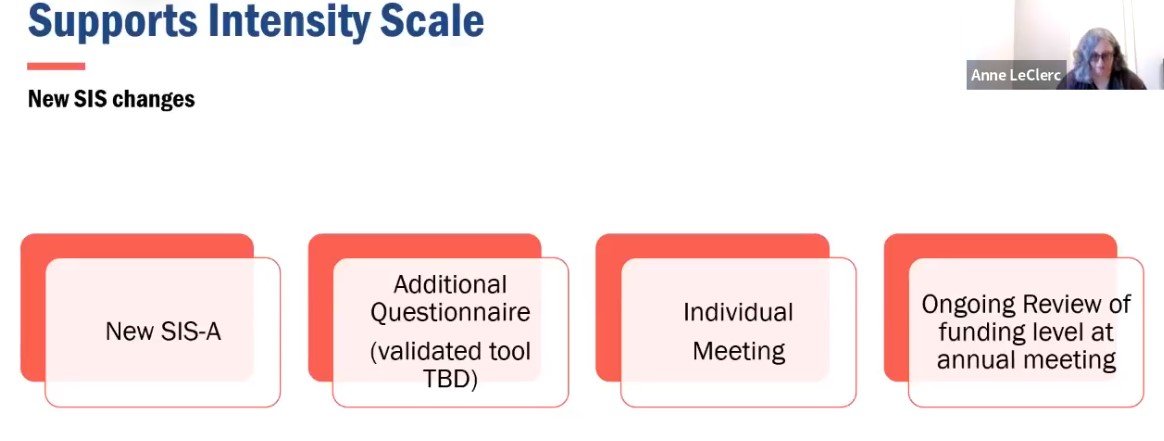DiPalma: RI DD Services Need More Than $18 Million To Continue Consent Decree Reforms
/By Gina Macris
One of the Rhode Island Senate’s chief advocates for adults with developmental disabilities applauded the House and Senate consensus on restoring $18.4 million to reimbursements for private service providers but said that amount is not enough to enable the state to continue transforming its programs to comply with the Americans With Disabilities Act.
Reacting to the latest positive revenue estimates, Sen. Louis DiPalma, D-Middletown, said May 11 that reversing a cut planned by Governor Gina Raimondo for the fiscal year beginning July 1 would be a “phenomenal step forward.”
But DiPalma, who has closely followed developmental disability issues, said he hopes the General Assembly can find additional funds so that the state can continue to invest in the goals of a 2014 civil rights federal consent decree and also, for a third consecutive year, raise wages for direct care workers who provide services to adults with developmental disabilities.
Restoring $18.4 million to private providers, and an additional $3 million to a state-run network of group homes, would bring the developmental disabilities budget to about $272.2 million. That reflects the pace of spending for the current fiscal year.
DiPalma said developmental disabilities will need about $275 million to $280 million in federal and state Medicaid funding during the next fiscal year to continue the decade-long transformation of services from a segregated to an integrated model, as mandated by 2014 consent decree with the U.S. Department of Justice.
DiPalma’s remarks came the day after the state Revenue Estimating Conference concluded May 10 that revenues for the next 14 months are expected to run a total of nearly $135 million ahead of estimates made in November. That total includes an additional $75.5 million for the fiscal year ending June 30 and another $59.4 million in Fiscal 2019, which begins July 1.
The $18.4 million gap in reimbursements to private providers for Fiscal 2019 refers tMo both federal and state Medicaid funds, with the federal government providing roughly 52 cents on the dollar. That means the state would have to put up about $9 million to close the $18.4 million hole.
House Speaker Nicholas A. Mattiello and the President of the Senate, Dominick J. Ruggerio, issued separate statements saying they were pleased that revenues exceeded prior estimates. In recent days, they also have listed developmental disabilities as one of the priorities that must be addressed, although neither viewed the extra cash as a panacea, because of multiple unmet demands on the state budget.
Mattiello’s statement said, “This offers some more options for us as we consider some very tough choices in our budget deliberations. I am committed to making sure we pass a responsible budget that addresses the critical needs of our citizens and continues to move the state forward.”
In addition, on May 11, he said the House “always” planned to address the $18.4 million gap between current spending for developmental disabilities and the governor’s proposal for the budget cycle beginning July 1.
Ruggerio, the Senate president, said, “As we work together to craft a responsible budget, it is important to consider that a significant portion of this increase is one-time revenue that may not continue in future years, and that there are significant gaps in the current budget proposal that need to be filled. However, the additional revenue does provide some flexibility to address Senate priorities such as funding for developmental disabilities care within the BHDDH budget and funding for DCYF.” Ruggerio referred to the Department of Behavioral Healthcare, Developmental Disabilities and Hospitals, and to the Department of Children, Youth and Families.
While adequate funding is the most immediate issue, there are other regulatory matters that concern a federal court monitor and the BHDDH administration. The Senate has signaled it is open to change, both in the short term and the long run.
In a brief telephone interview May 11, Mattiello said he, too, is open to considering changes, although he did not get into specifics.
“I know the needs are significant,” he said. “I’ve got constituents in the community that have developmentally challenged family members. These folks need help, and I’m very, very available to that.”
“I’m open to study and to doing things better,” Mattiello said. “The department (BHDDH) and the administration certainly can do things better.”
“These are complex issues,” Mattiello said.
The Senate has passed a resolution authorizing a 19-member commission to study the fee-for-service reimbursement structure, with a report due March 1, 2019.
In addition, the Senate Committee on Health and Human Services is to vote May 15 on a bill to change the timing of individual funding authorizations for developmental disability services from quarterly to an annual basis.
An independent federal court monitor in the consent decree case, administrators at BHDDH, and private service providers all have found the quarterly authorizations problematic for a variety of reasons.
Providers have said the quarterly authorization system does not allow them to do any long-range budgeting. Anecdotal accounts of families unable to find services indicate a tendency in recent years for providers to avoid taking on clients with complex and costly needs for fear of financial risk that they may not be to cover.
Meanwhile, the Director of Developmental Disabilities testified at a recent Senate Finance Committee meeting that quarterly authorizations are administratively burdensome. The 3700 individual authorizations in the division’s caseload must be entered manually in the state reimbursement system four times a year, said the director, Kerri Zanchi.
At the same time, DiPalma, the first vice chairman of the Senate Finance Committee, noticed that in some years there are significant dips in the caseload numbers in April and October – as many as 145 or 150. This timing coincides with the governor’s budget preparation process in the fall and the legislature’s refinement of the final figures in the spring. In general, each client represents an average of $60,000 in federal-state Medicaid funding.
One reason for that variability might be data entry errors, according to Donna Martin, executive director of the Community Provider Network of Rhode Island, a trade association of service providers.
The bill requiring annual authorizations says they are necessary to allow adults with developmental disabilities to plan their services in a “flexible manner consistent with their stated goals and plan of care,” in accordance with the principles of the Centers for Medicare and Medicaid Services and the Home and Community Based Services Final Rule. Among other things, the Final Rule requires service plans to be based on an individual’s needs and preferences.
The bill would not preclude the state from changing reimbursement rates to providers in the middle of a fiscal year, but they and their clients would have to receive 45 days’ notice.
























